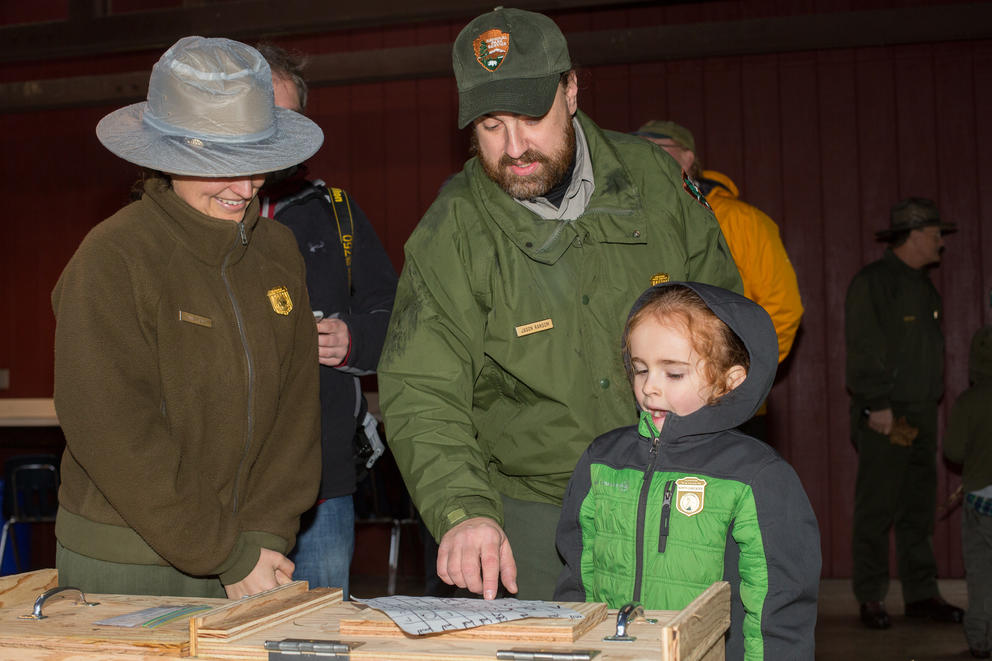A senior wildlife biologist at North Cascades National Park, Ransom usually spends his time on carnivore restoration and ecology. But these days, he’s a frustrated American citizen stuck at home while sensitive wildlife goes unattended or receives less attention than it deserves.
By now, Americans are familiar with the most visual examples of the shutdown’s pressure on national parks: Images of damaged Joshua trees; piles of beer bottles, discarded clothes and human waste; and impassable roads show how public lands become reminiscent of unsupervised high school parties when rangers and other stewards are away.
To be sure, volunteers across the country are trying to pick up the slack. But Ransom is just as worried about the damage we can’t see yet: the as-yet-uncalculated damage to threatened plants and animals, the interruption of critical monitoring and ecological studies, the loss of connection and camaraderie between like-minded NPS peers. He won’t know the extent of the impacts for a while, as shutdown rules mean he and his co-workers can’t work, no matter how much they want to.
Ransom spoke with Crosscut about the hardships affecting Washington’s flora, fauna and the professionals who care about them as the shutdown drags on. He says his views don’t reflect the U.S. government or the National Park Service, and he isn’t speaking as a federal employee. This interview has been edited for clarity.
Crosscut: What are the biggest impacts to environmental science in Washington because of the shutdown?
Ransom: The most obvious issues are the growing holes in long-term data. Those holes can never be filled because they are data collected on specific species at specific points in their life cycle. Those data have just gone by.
Over time, every one of those holes adds uncertainty to our long-term models and how we understand species, their life cycles, ecosystems, and change. We just missed the midwinter bald eagle survey on the Skagit River. It was a high chum salmon year so presumably a big eagle year, but we'll never know. The park's eagle data goes back nearly 50 years.
Many of our summer-season projects are just in the prep phase — where we’re hiring biotechs, creating study designs, and doing lab analyses — so currently they’re not catastrophically affected. If this goes another month, it will derail much of that work, —including projects that involve graduate students and their studies.
Have there been immediate physical effects on Washington park landscapes?
We have no idea what is happening in the park complex in terms of visitor use and resource impacts. That is something we monitor closely so we can protect resources in real time. Trash and food sanitation is a huge issue, because even short-term exposure of some wildlife species to waste can create enormous long-term issues [like habituation] and present dangers to both wildlife and humans that come later.
What about on the conservation side?
I’m continually concerned about grizzlies, but that's a broader political issue.
Some big projects, like the Washington Fisher Restoration, are limping along only because we have a broad collaboration that includes state and NGO organizations. The lead federal agencies can't finance critical parts, but partners [like Conservation Northwest, the Calgary Zoo, and Washington Department of Fish and Wildlife] are keeping all of the parts that deal with live animals — housing, veterinary, transport — functioning for now. That's a very temporary fix, but critical. The majority of this project comes from federal funds.
The state has a very limited budget to keep the fisher project going, primarily thanks to an NGO donation from Northwest Trek/Point Defiance Zoo. They are helping keep up the fisher release transports and conducting limited aerial telemetry surveys using the state plane. The federal aviation contractor is grounded, since they depend on federal funds to fly for fisher data.
Why is there urgency for reintroducing endangered fishers to the Cascades now?
The reintroduction season is a winter window when animals aren't yet denning and giving birth. We have to move them before that period, and within a small enough window of time that biologists know other fishers are on the new landscape, so the new animals don’t disperse more broadly in search of other fishers. It’s tenuous but partially still working. But the winter time-frame for that project is speeding by and we're behind schedule.
Fishers are in a slowdown, and everything else is a standstill — mostly sensitive species monitoring. We’re talking wolves and bald eagles primarily, but also a fisher prey-and-habitat study led by a grad student.
Lab work, analyses, and prep are stopped for spring projects — harlequin ducks, bald eagle/peregrine [and] falcon/osprey nesting, an alpine carnivore/marmot study. Long-term land birds monitoring is somewhat on track, in that a partner NGO does the staff recruitment and seasonal prep, but it will be stalled as it gets closer to March. That’s when we conduct trainings and develop the seasonal safety plan, and when federal housing must become available.
Park staff often represent science at meetings with partner organizations and the public. What happens when you’re not there?
A big issue at North Cascades is that the initial hydroelectric relicense meetings are now taking place for the science working groups. This is for Seattle City Light's proposed 50-year license for the three dams that are entirely within the national park complex.
None of the park scientists are a voice in that process while the government is shutdown. A big report I am leading for that effort is not getting done — it details the state of species of concern in the park complex over the past 25 years. It will take months to complete but must be submitted before this fall. The longer the shutdown continues, the less time we have to get the science done for that important effort.
Since you can’t work, how have you spent the furlough?
Lots of time at home. I’m trying to work on all the things that I do normally in the off hours, like working on scientific papers with grad students. (Ransom is also affiliate faculty with Colorado State University’s Department of Ecosystem Science and Sustainability.)
Do you know anyone in the sciences who has felt the impacts of the shutdown in severe ways — maybe had to look for another job or face similar hardships?
I don't know, in part because we are all so cut off from each other. It’s amazing how much the workplace network really functions when it's open.
Mentally, it’s all exhausting — the uncertainty contributes to depression. Mental health is a big thing that hasn't received much attention. Most of us in the natural resource world care deeply about what we do, and we also rely heavily on each other for collaboration and support.
Even at the single-park level, most people probably don't realize how connected the system is. Staff from my park went to help with the California fires, hurricane response in Florida and the volcano and storm impacts in Hawaii. We email and call each other across the national park system for expertise on certain issues.
The shutdown has physically cut everyone off from one another while also introducing financial hardship. That's a potent recipe for depression and lots of us are affected. The longer we are isolated — at home, uncertain about the resources we protect, losing the data that helps us understand and protect them, and unable to support our families — the worse the mental-health issue will get.
The tragic part is that this is all an artificial disaster. We spend our careers preparing and assisting visitors with emergencies and stepping up in times of disaster, and yet we are most deeply impacted by a situation that is manufactured entirely by politics.
Has the shutdown affected how you feel about your job?
That’s uncertain. I believe in what I do, and the job itself is invaluable to the health of our public lands. That's why government employees generally work for less than people in the private sector. It’s about the actual service.
I'm in a senior science position working in an ecosystem I've grown to know and love. I have a child that has his own community in friends and school. I'd be very hesitant to change that at the moment. If I were early career without roots, I'd almost certainly be off to work in another country, for a variety of reasons.
How has your life changed financially?
Missing the first paycheck was difficult, but not catastrophic because I had some savings to tap into.
I've been a public servant for over 15 years and I'm a single dad. I've made a priority of building up at least a paycheck or two in savings in case of emergency. That's what we're living on now. When that runs out, things will be much worse. In the broader picture, this means we're living on our safety net, so if an actual emergency occurs, we have nothing.
It also means I'm not supporting local businesses, or eating out, or grocery shopping at usual levels — all things we normally budget for to contribute to our community.
What would your situation be if the shutdown continues, into February and beyond?
It would be exponentially worse. Loans from my 401k are an option for me, to keep the status quo for my child and household, especially now that we know we will get paid eventually.
The uncertainty about work and finances is one thing, but the uncertainty about what I do for public service becomes unbearable. So many lost data points set the science back in ways we can't recover from. The work not being done can't always be recovered — nature keeps moving, seasonal changes keep happening. It doesn't wait for politics or anthropocentric nonsense.



